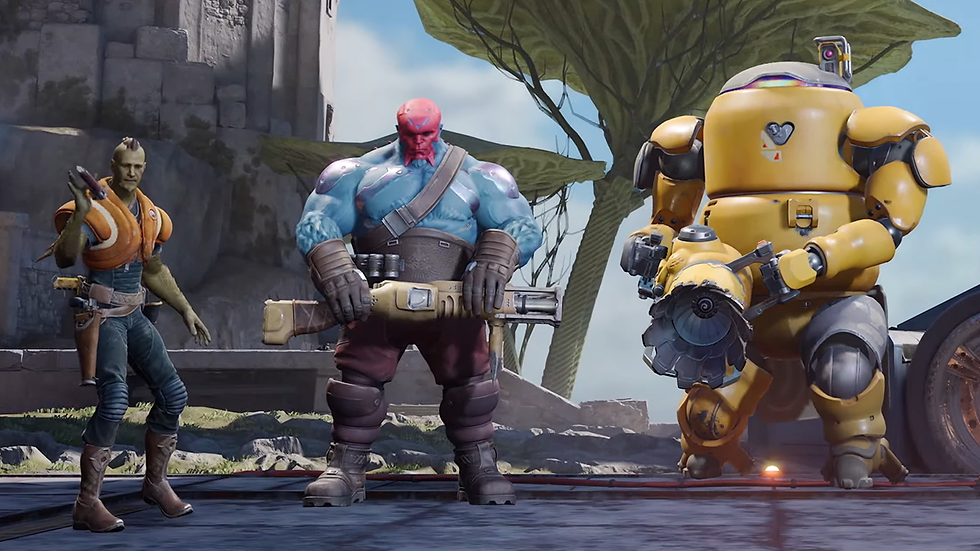Concord Has Reportedly Only Sold 25,000 Copies So Far
- Mutamwa Chioma Mataka
- Sep 1, 2024
- 2 min read
Updated: Oct 26, 2024
In the past week, there's been a lot of buzz around Sony's new multiplayer shooter, Concord. Surprisingly, the chatter isn't about the game’s success but rather its lack of players.
While it's common for some games to underperform at launch, Concord’s particularly poor debut has drawn attention because it’s a high-profile Sony first-party title. The game’s launch on August 23 saw just 697 concurrent players on Steam, and the numbers haven't improved much since. As of now, only about 130 people are playing the game on Steam—a shockingly low figure, even for a title with average reviews.
While low launch numbers can sometimes be misleading, that doesn't seem to be the case here. Liam Deane, a principal analyst at Omdia, stated, "The Steam numbers are so bad that even without exact PS5 data, it's clear the game is doing very poorly."
Other analysts provided some insight into the PlayStation side as well. Mat Piscatella from Circana, using data from Circana’s Player Engagement Tracker, noted that on August 26, Concord ranked 147th among US PS5 daily active players, with less than 0.2% of active PS5 users playing the game that day. Simon Carless, who writes the GameDiscover.co newsletter, estimated that Concord has sold around 10,000 units on Steam and about 15,000 on PlayStation as of August 28, 2024.
As it turns out, creating a fun, high-quality shooter isn’t enough in today’s crowded live-service market. Several analysts pointed out that Concord had been in development for years, with significant financial and time investment from Sony. The game was well-produced, and as Rhys Elliott from Midia Research mentioned, it’s enjoyable to play.
The $40 price tag also hurt the game, especially since its main competitors are free-to-play. As Carless pointed out, multiplayer shooters face an uphill battle unless they can persuade entire groups of friends to switch games. Players are often reluctant to abandon their current games, where they’ve invested time and money in cosmetics and other perks. This issue also extends to content creators, who risk losing their audience if they switch to a new, unproven game.
Free-to-play games allow players to try them out without financial commitment, but Concord's $40 price makes that unlikely. Van Dreunen mentioned that this is particularly problematic near the end of a console cycle when players are more cautious about spending on new games.
Timing also played a role in Concord’s struggle. It launched on August 23, just three days after Black Myth: Wukong, a much-hyped game that overshadowed Concord in terms of marketing and sales. Concord’s release date was announced five months after Black Myth: Wukong’s, but Sony didn’t adjust the timing to avoid this clash.
Concord’s failure has drawn attention because it contrasts starkly with its status as a Sony first-party title in a popular genre, yet it launched to an almost complete lack of interest. But the reasons behind its failure are straightforward. Sony chose not to heavily market the game, set a high price point despite fierce competition from free-to-play titles, and failed to offer something truly unique in an overcrowded market. Even if these factors had been different, Concord was always facing an uphill battle—one that will only get tougher as more multiplayer shooters are released in the coming years.






.png)

Comments